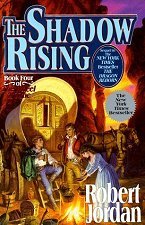
Jess has resumed her Writer’s Weekly Question, and as always, her question doesn’t disappoint. She’s given out a very timely one that touches on the whole Kaavya Viswanathan controversy.
Writer's Weekly Question #14:
How much do you borrow from your favorite writers, and how much is actually your very own ideas? At what point does "borrowing" become "plagiarism?"
 For those unfamiliar with how this question ties into Viswanathan and her book How Opal Got Kissed, Got Wild and Got a Life, a quick explanation. Viswanathan, now a Harvard student, first made headlines when she was in high school by landing a half million dollar book deal with Little, Brown & Company. The book came out this past April, and fans of Megan McCafferty’s books immediately noticed certain phrases that appeared lifted from McCafferty’s books Sloppy Firsts and Second Helpings. Harvard’s newspaper "The Crimson" broke the story and even offered examples of how Viswanathan appears to have plagiarized McCafferty’s works. Viswanathan has defended the similarities by claiming they were an accident, that the phrases must have gotten stuck in her mind when she read McCafferty’s books—a claim weakened by the more than two dozen instances where this happens within her book.
For those unfamiliar with how this question ties into Viswanathan and her book How Opal Got Kissed, Got Wild and Got a Life, a quick explanation. Viswanathan, now a Harvard student, first made headlines when she was in high school by landing a half million dollar book deal with Little, Brown & Company. The book came out this past April, and fans of Megan McCafferty’s books immediately noticed certain phrases that appeared lifted from McCafferty’s books Sloppy Firsts and Second Helpings. Harvard’s newspaper "The Crimson" broke the story and even offered examples of how Viswanathan appears to have plagiarized McCafferty’s works. Viswanathan has defended the similarities by claiming they were an accident, that the phrases must have gotten stuck in her mind when she read McCafferty’s books—a claim weakened by the more than two dozen instances where this happens within her book.Had Viswanathan only committed this error one or two times, I’d be inclined to take her at her word—that it was an honest mistake, because the phrase (being a good one) was in her head and found its way onto the page when she needed it. I say this because, I’ve had at least one case I know of where I’ve done something similar.
 While my wife Sheri and I were writing our first effort together, The Knight of Death, I was struggling for a decent curse word. I didn’t want to use the traditional stuff, but rather something local to this fantasy culture we’d created. The phrase that answered my call was “burn me.” I read over it a few times after I wrote it and thought it sounded great. Even Sheri liked it. I was all happy until I started reading through one of Robert Jordan’s books and realized why the phrase sounded so good. I’d subconsciously pilfered it from his “Wheel of Time” series. Admittedly, I might could have gotten away with that bit of thievery, but I worried others would see it and recognize it as something I’d taken from Jordan’s books. Thus, I ditched it and found another phrase to use.
While my wife Sheri and I were writing our first effort together, The Knight of Death, I was struggling for a decent curse word. I didn’t want to use the traditional stuff, but rather something local to this fantasy culture we’d created. The phrase that answered my call was “burn me.” I read over it a few times after I wrote it and thought it sounded great. Even Sheri liked it. I was all happy until I started reading through one of Robert Jordan’s books and realized why the phrase sounded so good. I’d subconsciously pilfered it from his “Wheel of Time” series. Admittedly, I might could have gotten away with that bit of thievery, but I worried others would see it and recognize it as something I’d taken from Jordan’s books. Thus, I ditched it and found another phrase to use. Speaking of Robert Jordan, I have had at least one case where I did purposefully try to mimic something he wrote. Perhaps my favorite sentence from any book came from Jordan’s The Shadow Rising. In the third chapter of that book, two warriors are compared to each other from the point-of-view of a young village boy: “Perrin was not sure which of the two men was more deadly, but he thought a mouse could starve on the difference.” I regret I can’t offer up the sentence I wrote, because I can’t find it and I’m not sure what it was. I did write a sentence comparing two things in a similar manner though, including the basic structure of the sentence. I adopted different wording to accomplish this, though, enough to keep it as a very subtle tribute to Jordan without committing plagiarism. I probably can’t find it, because I recall Sheri was uncomfortable with others potentially recognizing what I'd done and seeing us as imitators.
Speaking of Robert Jordan, I have had at least one case where I did purposefully try to mimic something he wrote. Perhaps my favorite sentence from any book came from Jordan’s The Shadow Rising. In the third chapter of that book, two warriors are compared to each other from the point-of-view of a young village boy: “Perrin was not sure which of the two men was more deadly, but he thought a mouse could starve on the difference.” I regret I can’t offer up the sentence I wrote, because I can’t find it and I’m not sure what it was. I did write a sentence comparing two things in a similar manner though, including the basic structure of the sentence. I adopted different wording to accomplish this, though, enough to keep it as a very subtle tribute to Jordan without committing plagiarism. I probably can’t find it, because I recall Sheri was uncomfortable with others potentially recognizing what I'd done and seeing us as imitators.So when does borrowing turn into plagiarism? That’s a tough one to answer. I think a writer has to let the characters guide him/her. You can’t ask yourself what other writers would do or have done. A writer has to service the story at hand and be committed to telling just that story. I think if someone does that, then they’ll be less likely to steal other people’s work.













No comments:
Post a Comment